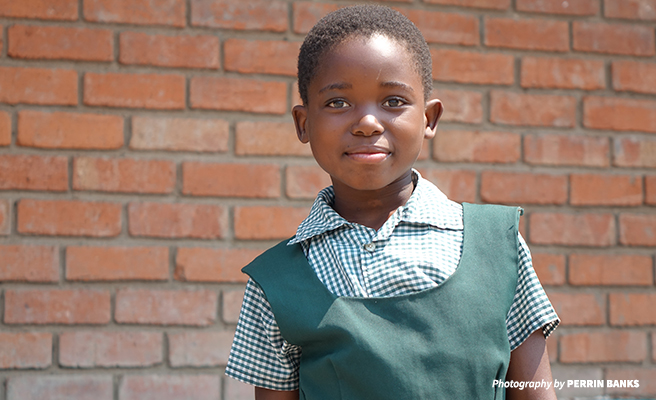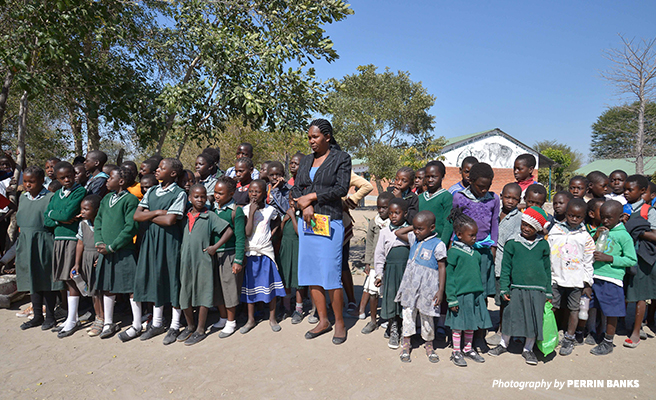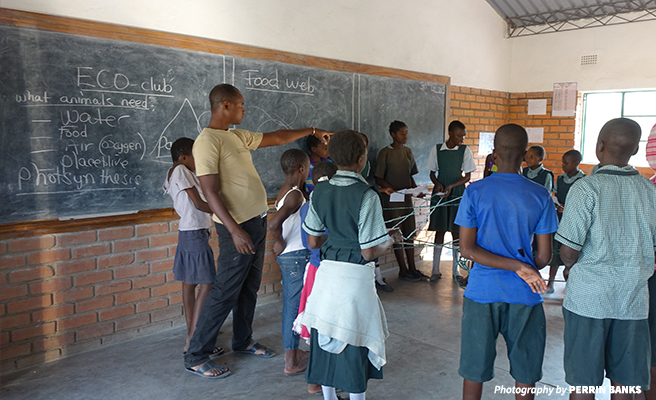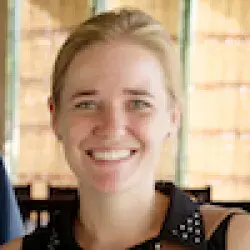Engaging Girls in Both Education and Conservation

I first met Lisa two years ago, at the Lupani Community School in Zambia. A shy, intelligent fifth grader, she was working hard to keep up with her studies. Now, in grade 7, Lisa has just won first prize in a district-level social studies competition and is traveling to the provincial capital to represent her district at the regional level.
Lupani is located in a rural area in southern Zambia. Here, community livelihoods typically depend on exploiting natural resources. So when the Sekute community set aside land for conservation, AWF started supporting the school through its Classroom Africa program as a benefit to the community and a way to promote conservation through education. The aim was to provide classrooms, teacher housing and access to quality education through resources, teacher training and co-curricular conservation activities. The progress made has been significant—an accomplishment like Lisa’s was unknown for young girls there just five years ago.
AWF’s support has also opened new doors for the teachers at Lupani. Mrs. Mulonda Imbuwa, the head teacher at the school, is a great example. With her strong-willed character and passion to teach, Imbuwa has helped increase enrollment from all over the district, transforming Lupani into what Zambia’s educational authorities are calling a model school.
Opportunity to achieve full potential
In a rural community where girls are often the first to be excluded from education, Imbuwa has given girls like Lisa the opportunity to achieve their full potential. I am often told that when students first arrive at Lupani, they cannot read or write in English. Within just a couple of years, however, their grades improve significantly. Even first graders are learning how to speak in English. This is unprecedented in the area—usually lessons are taught in the local, provincial language until grade four.

Lisa’s father, a seventh-grade teacher at Lupani, moved his family to the school three years ago. It was the quality of education and the facilities that attracted him to teach there. “So far it’s the best school; every child desires to be there, Everyone is talking about Lupani,” he says. “Children at other schools in the area don’t have the opportunities to be challenged like they do here.”
Lisa is no exception. Mrs. Imbuwa says that when Lisa first came to Lupani, she was behind in her studies and overall did poorly in school. Now she is an active participant and performs well in not only social studies but science and mathematics too.
Beyond daily lessons, Lisa is also involved in the school’s conservation club. The club meets once a week, covering subjects like the food web, water cycles and the importance of wildlife. Every year, the top six students in the club are invited to attend conservation camp at one of the local lodges with Children in the Wilderness. This year, Lisa was one of four girls chosen to attend from Lupani.
The four-day camp was hosted by Toka Leya lodge on the banks of the Zambezi River. Students spend the time exploring the environment and participating in activities such as game drives and nature walks. They take part in workshops on conservation, environmental management and other societal issues such as HIV/AIDS and nutrition.

Giving children like Lisa the opportunity to engage in learning outside the classroom is something I believe is necessary to build character and. It also demonstrates the potential inherent in a well-rounded education system. Globally, people are talking not just about education, but high-quality education for kids everywhere. But inclusive education is also about giving young girls like Lisa mentors who can guide them, teachers who can encourage them and futures they can believe in.
Two years ago, Lisa wanted to be a nurse. Today she wants to be an accountant—who knows where she will be 10 years from now. But no matter what, Lisa, and other girls like her, will have had the educational foundation to know that, with determination, anything can be achieved.
This article is the final piece in a series about women engaging in conservation at all levels. Read the first, second and third articles to discover some of the amazing women working to defend Africa’s natural heritage.
